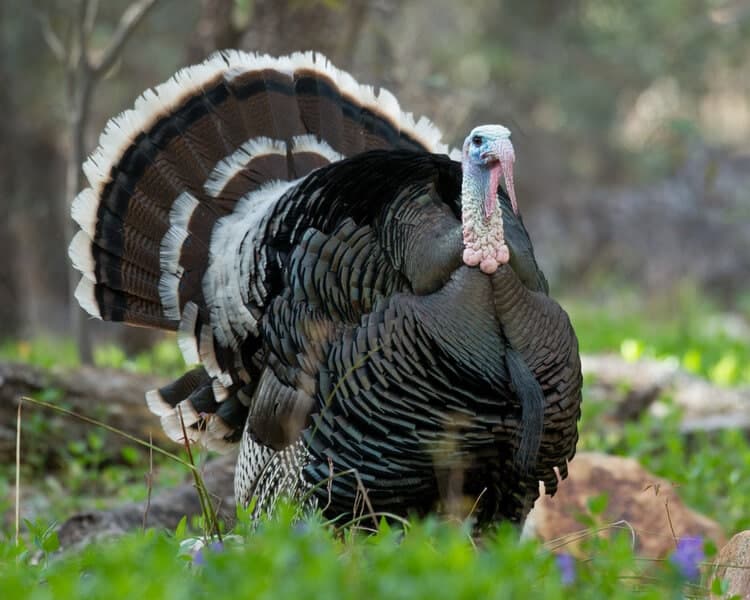Attracting wild turkeys to your yard is pretty straightforward if you make your yard welcoming to these fascinating big plump birds. On the one hand, turkeys must roost at night in large trees, away from the ground and potential predators. However, they like to mate and eat outside in open areas. Therefore, you must have a variety of wooded, brushy, and open areas for wild turkeys to be interested in living in your yard. So, if you want to make your backyard turkey-friendly, check out our six tips and other important information to consider before embarking on such a project.

Top 6 Ways To Attract Turkeys To Your Yard:
1. Provide Turkeys with a Varied Diet Year-Round
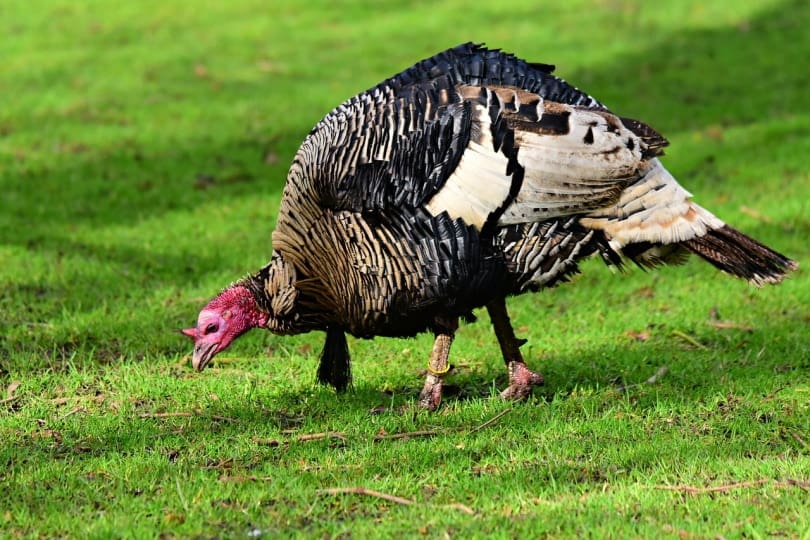
The turkey is an omnivorous and opportunistic bird that feeds mainly on insects, nuts, plants, and berries. Occasionally, it can also catch small animals such as frogs and salamanders. Its diet varies depending on the availability of food sources during the different seasons as well as its nutritional needs at each stage of its life. During the winter, the turkey must be opportunistic to feed, especially when the snow cover on the ground is thick. In agricultural environments, it can consume, for example, corn or soybean crop residues that have fallen to the ground in fields.
So, to attract turkeys to your yard, you can plant a variety of native tree and shrub species to ensure adequate nutrition throughout the year. As the favorite food of the wild turkey consists of several wild fruits such as acorns from oaks, beech, or ash, as well as berries from fruit shrubs, you can cultivate these trees and shrubs. For example, trees and shrubs that retain their fruit (staghorn sumac, crabapple, dogwood, raspberry, hawthorn, elderberry, juniper, holly) are essential sources of food for turkeys.
Note: It is not advisable to attract turkeys with bird seed from feeders, mainly because artificially feeding turkeys causes them to lose their natural fear of people.
2. Provide a Water Source
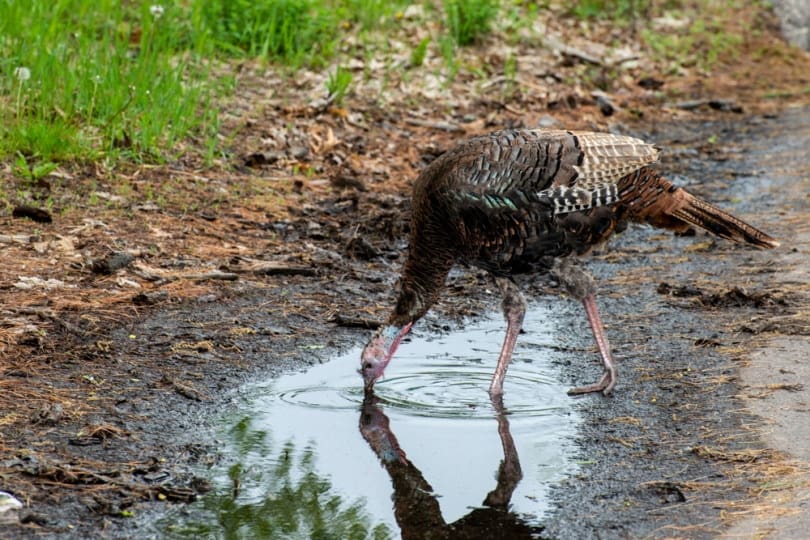
Provide a source of water in addition to natural food sources. By installing a backyard pond or even a birdbath placed directly on the ground, you will provide an excellent source of drinking water for thirsty turkeys.
Birdbaths placed on the ground are indeed a good way to provide water to turkeys. However, the pond should also be large enough to accommodate several of these large birds.
Keep in mind that most animals don’t like to drink standing water, and the wild turkey is no exception. So be sure to change the pond water frequently to keep it crystal clear and clean. Finally, if you are lucky enough to have a stream running through your property, the turkeys will be more than delighted to soak their beaks in it!
3. Install Shelters and High Perches
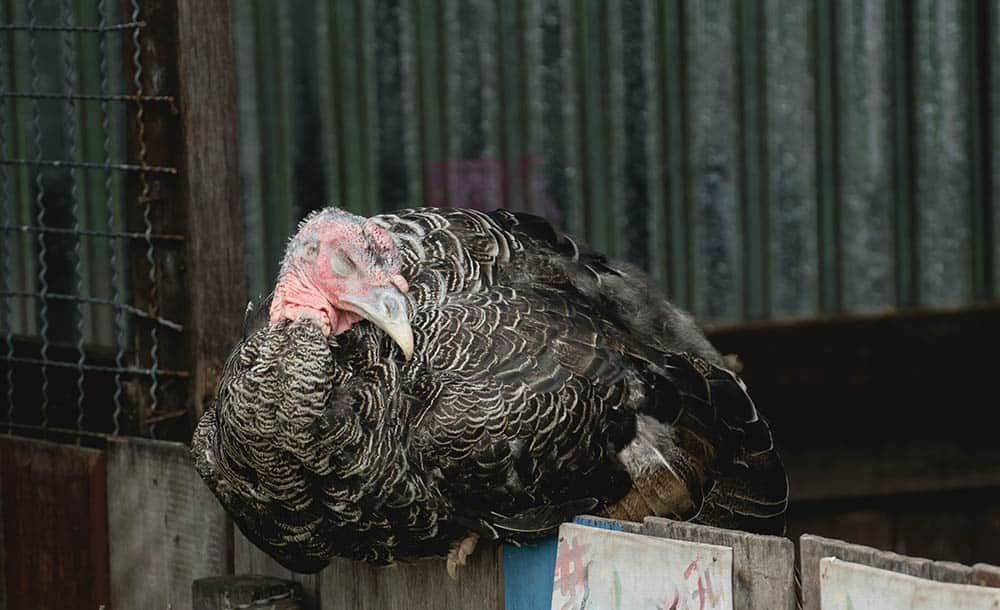
Wild turkeys are diurnal birds that like to roost in tall trees at night to escape nocturnal predators. Make your yard turkey-friendly by making sure the birds have plenty of perches away from ground predators (like foxes, raccoons, or coyotes). Mature shrubs and a large pile of brush or wood can also provide a safe shelter for turkeys.
4. Provide Nesting Sites
During the breeding season, females will tend to cluster around two or three males. Subsequently, they form groups composed only of females with their young once they are born. Females lay their eggs directly on the ground and cover their eggs with leaves when they leave the nest. During nesting, the eggs are particularly vulnerable to attack by predators; this is why females will generally settle in places where the vegetation is quite dense on the ground, such as tillers of raspberries and blackberries. So, you can easily provide attractive and safe nesting sites for turkeys by placing piles of brush and other bushy shrubs in your yard.
5. Limit Your Use of Pesticides
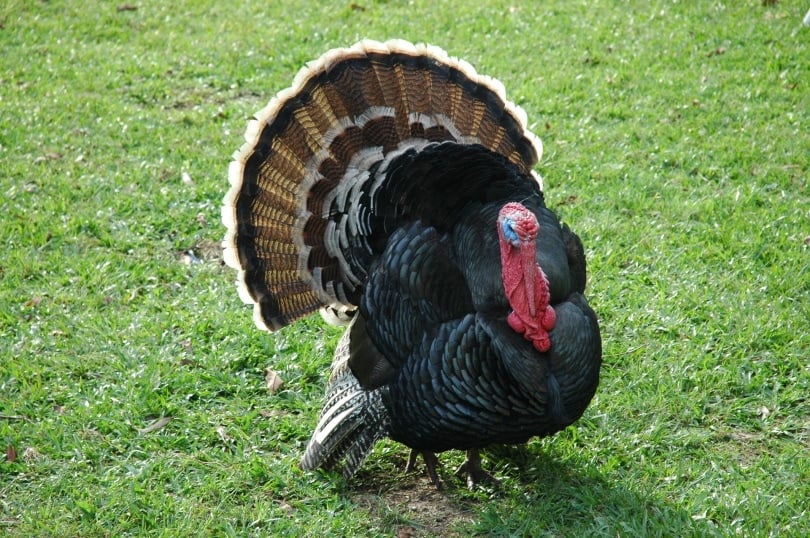
It’s no secret that pesticides used in the garden are generally harmful to wildlife. By limiting their use, you are ensuring that you are not causing direct harm to your winged visitors, in addition to providing them with an extra dose of protein in the form of insects. Thus, this organic gardening technique will allow you to kill two birds with one stone: you attract turkeys, and they will thank you by getting rid of the harmful invertebrates that inhabit your garden!
6. Lock Up your Pets

For obvious reasons, your dog or cat will not mix well with your visitors. If you want to attract turkeys to your property, you will need to enclose your other pets inside your home for the safety of the birds but also for the protection of your pets. Indeed, male turkeys can be particularly aggressive during the breeding season and can cause severe injuries with their beaks and sharp talons.

The 3 Important Things to Consider Before Attracting Turkeys to Your Property
1. Attracting Turkeys May Be Illegal in Some States
If you live in the United States or Canada, where the highest populations of wild turkeys are found, it may be illegal to feed and attract turkeys to your property. Check with your local wildlife protection center or with the Humane Society if this practice is prohibited in your area or, in some cases, encouraged.
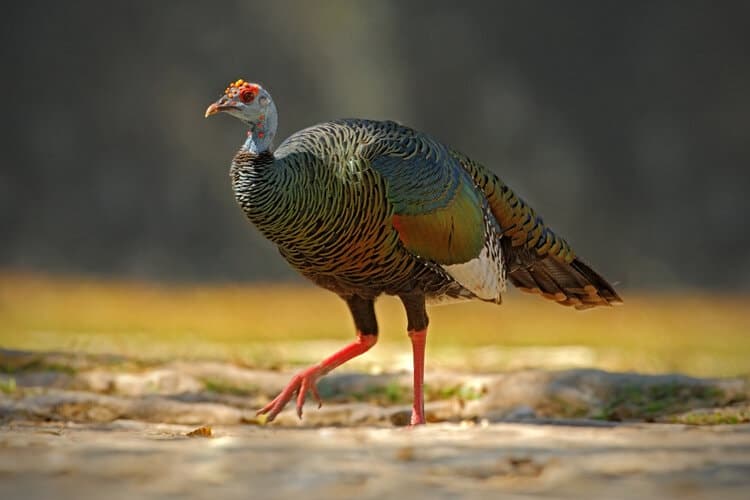
2. Turkeys Can Cause Damage to Your Property
Wild turkeys can damage your garden and eat the vegetables and herbs in your backyard. They might also try to perch on the roof of your house and leave the droppings on your patio. Wild turkeys may even attempt to perch on top of cars and scrape paint with their talons.
3. Male Turkeys Can Pose a Threat During Breeding Season
As mentioned above, turkeys, especially males, can be aggressive during the mating season. They can therefore pose a threat to pets, children, and even adults.
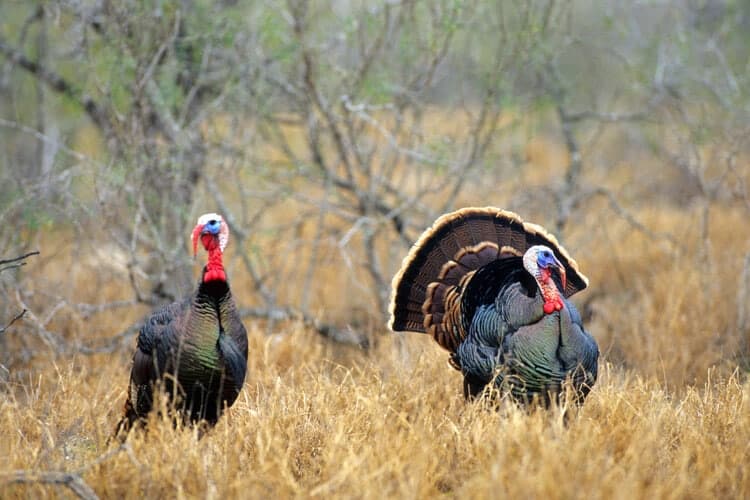

Final Thoughts
Attracting turkeys to your property is not rocket science: you need to make your yard turkey-friendly by meeting all their basic needs of feeding, sheltering, and breeding. But you should also check if this is allowed in your area, as wild turkeys are not necessarily welcome everywhere. In short, unless you are lucky enough to have a huge semi-wooded backyard where turkeys can find shelter and food without disturbing your neighbors, you should carefully weigh the pros and cons before inviting these chubby birds into your property.
Featured Image Credit: Sean R. Stubben, Shutterstock
